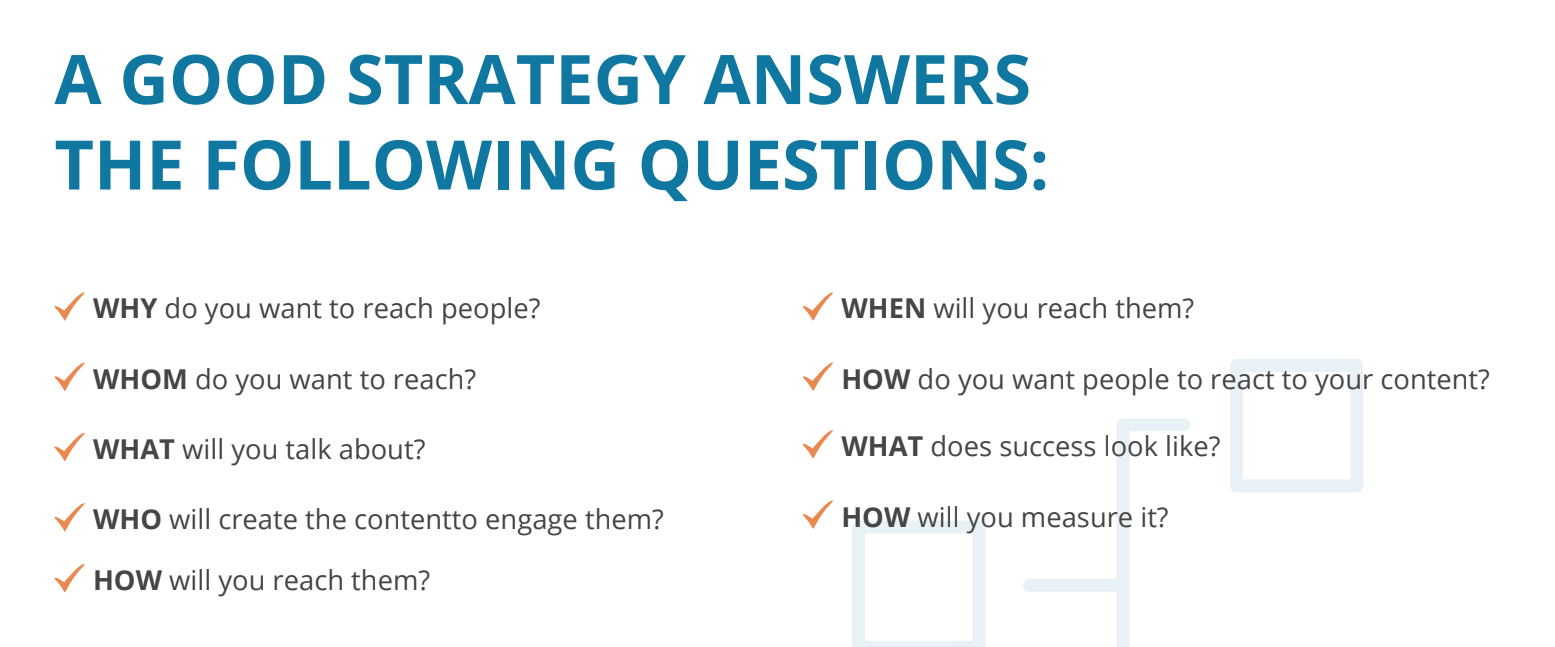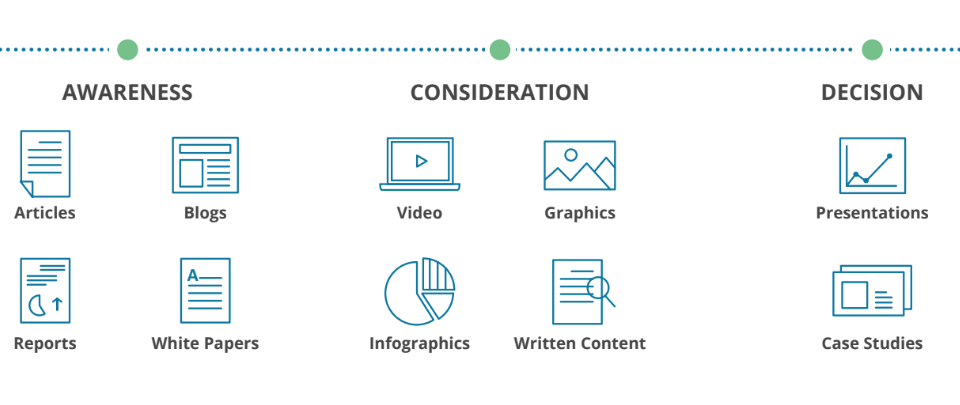Understanding Content Marketing and the Importance of Strategy
Customers buy from brands they know, like and trust. Gone are the days of heavy sales pitches that tend to pressure or irritate prospects. Instead, 77% of buyers prefer to do their own research, looking to only contact a sales representative when they are fairly confident that they are ready to buy.
This change in behavior among today’s smart buyers requires that companies create messaging that reaches your target audience and increases awareness of your brand while fostering engagement, sales and loyalty. This messaging can be in the form of social media posts, blogs, podcasts, videos, white papers, website copy and more. Content should be distributed where your audience is reading or watching to learn how you can alleviate their pain points throughout their research and various phases of their buying journey, ultimately earning their trust and converting them into customers.
This creation and distribution of valuable, relevant and consistent content to attract and retain a clearly defined audience, and ultimately drive a profitable customer interaction, is known as content marketing. More than 70% of companies use content marketing. When done strategically, this marketing approach can create noticeable sales increases to help grow your business.
Strategic Content Marketing
Content marketing isn’t about writing one blog every few months or posting on social media for a couple of weeks before leaving your audience hanging. It’s a long-term marketing approach that requires foresight and deliberate planning to be most effective. That’s why having a content marketing strategy that defines clear, actionable goals that serve your audience and build your brand is essential to realizing a return on your time and monetary investment. It serves as a roadmap to keep you, your teams and your partners on the same page and at the front of relevant discussions in your industry.
A well-planned and executed content marketing strategy that produces quality content with a clear message and branding that is easy to understand and follow will help establish you as a trusted leader in your space.

Considerations for an Effective Strategy
A good content marketing strategy answers the following questions:
- Why do you want to reach people?
Identifying your key objectives and goals helps determine the message, platforms, content type(s) and other aspects used in your strategy to best realize those initiatives.
- Whom do you want to reach?
Narrowing down your target audience and buyer’s persona creates the foundation for your content messaging and distribution.
- What will you talk about?
Content will relate to your prospect’s pain points, hesitations and other considerations. It should also be specific to each phase of their buying journey. This includes when they’re first becoming aware of your brand and offering through considering your product or service until they have all the information they need to confidently make a purchasing decision.

- Who will create the content?
This can be the most challenging part because content marketing requires consistent and quality output. Not every company has the creative skills or resources to dedicate to such a significant endeavor and may need to enlist help outside of the organization.
- How will you reach your target audience?
Content marketing is about taking the conversation directly to your target audience. This requires developing evergreen foundational content that you can also edit down into smaller slices, while keeping in mind timely or trending content. This will help build brand awareness and leadership across various paid, earned and owned media distribution channels so the right message is reaching the right eyes.
- When will you reach out?
Proper content and budget planning in advance can ensure you’re publishing relevant content on a consistent basis and allow you to be proactive in responding to current events that matter to your target audience.
- How do you want people to react?
Ideally, you want people to love, engage and share your content while taking actions that drive your desired business outcomes.

- What does success look like?
Success must be based on achievable, quantifiable goals established ahead of implementing your content marketing strategy.
- How will you measure success?
Trusted marketing automation tools like HubSpot can offer metrics to evaluate the success of your content marketing efforts.
Don’t Know Where to Start? Palmer can Help.
With so much to consider in forming an effective content marketing strategy, it can be difficult to know where to begin.
The reality is that content strategy is highly customizable to each organization. The pursuit of a single strategy that you can apply across all situations will result in one that offers little, if any, competitive edge.
At Palmer Ad Agency, we realize that each of our clients is different, communicating, delivering value and presenting their stories uniquely. Our three-step process starts with your story before developing a flexible process and establishing a workflow for successful content creation and distribution.
- The Story
- The Process
- The Workflow
Our team of experienced marketing professionals is here to guide you through developing and implementing your content strategy so you can focus on the other important demands of your business.
Get in touch with us for a free 60-minute consultation.




